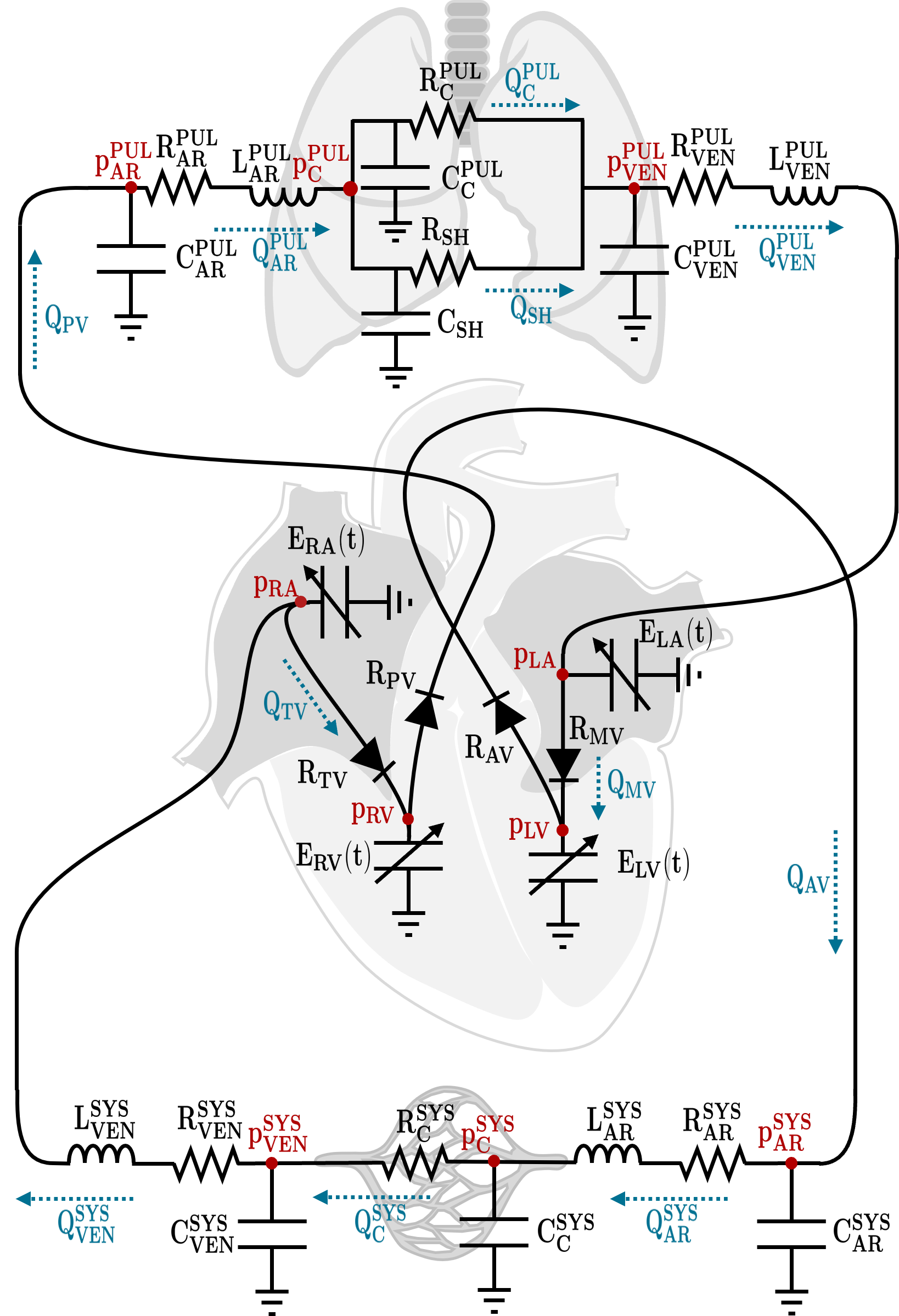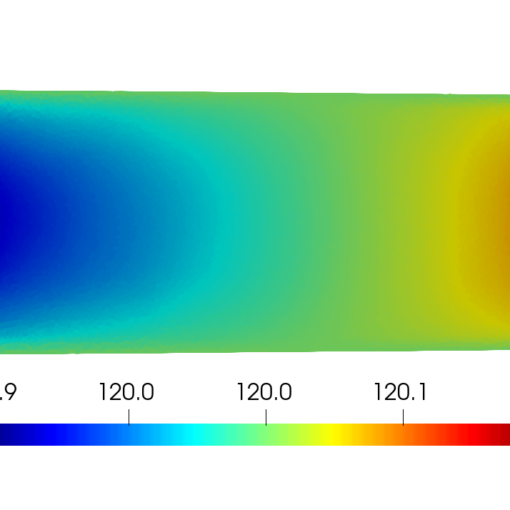A new MOX report entitled “A mathematical model to assess the effects of COVID-19 on the cardiocirculatory system” by Tonini, A.; Vergara, C.; Regazzoni, F.; Dedè, L.; Scrofani, R.; Cogliati, C.; Quarteroni, A. has appeared in the MOX Report Collection.
The report can be donwloaded at the following link:
https://www.mate.polimi.it/biblioteca/add/qmox/42/2023.pdf
Abstract: Impaired cardiac function has been described as a frequent complication of COVID-19-related pneumonia. To investigate possible underlying mechanisms, we represented the cardiovascular system by means of a lumped-parameter 0D mathematical model. The model was calibrated using clinical data, recorded in 58 patients hospitalized for COVID-19-related pneumonia, to make it patient-specific and to compute model outputs of clinical interest related to the cardiocirculatory system. We assessed, for each patient with a successful calibration, the statistical reliability of model outputs estimating the uncertainty intervals. Then, we performed a statistical analysis to compare healthy ranges and mean values (over patients) of reliable model outputs to determine which were significantly altered in COVID-19-related pneumonia. Our results showed significant increases in right ventricular systolic pressure, diastolic and mean pulmonary arterial pressure, and! capillar y wedge pressure. Instead, physical quantities related to the systemic circulation were not significantly altered. Remarkably, statistical analyses made on raw clinical data, without the support of a mathematical model, were unable to detect the effects of COVID-19-related pneumonia, thus suggesting that the use of a calibrated 0D mathematical model to describe the cardiocirculatory system is an effective tool to investigate the impairments of the cardiocirculatory system associated with COVID-19.




